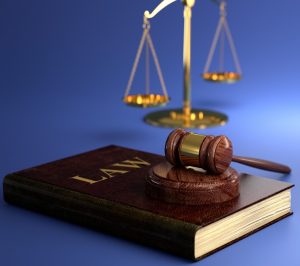
Criminal Defense Law Firm 317-636-7514
It’s that time of year again when race fans from all across the country flock to the Indianapolis Motor Speedway for the annual Indy 500 race and the events surrounding its return. But this year is extra special since it marks the race’s 100th anniversary. Hoosiers have already enjoyed watching the qualifications and taking part in the Armed Forces Pole Day, but we still have the Indianapolis 500 parade and Carb Day to look forward to before the actual race. And although the outcome of the race is unpredictable, the
activities that will take place at the track aren’t.
Every year, the excitement and universal comradery is generally accompanied by a copious amount of grilling out, eating food, and of course, drinking cold beverages, namely alcoholic ones. In fact, Race Day is well-known in the Indianapolis law enforcement circles as one of the highest arrest days of the year. A combination of under-age drinking, public intoxication, disorderly conduct, and even drunk driving are all repeat crimes seen by police every year. If you and your friends are planning a big celebration at the track this year, be sure to review some helpful tips that can prevent an untimely arrest on Race Day.
Public Intoxication and Other Alcohol Related Crimes

Criminal Defense Law Firm 317-636-7514
Although it is perfectly legal to be intoxicated in public, it is at the discretion of the police officer to determine if a person’s intoxication is a danger or annoyance to themselves or others. For this reason, it is best to act appropriately when drinking in public to avoid being profiled by police. In fact, you might as well accept the fact that you and your group WILL BE profiled by police at the race. That is their job and it is how they keep the track safe and fun for everyone.
Here are some behaviors to avoid so you can avoid being arrested for a PI or other alcohol-related crime, including disorderly conduct, driving under the influence, under-age drinking, and more.
AVOID…
Under-age drinking. Parents of teenagers that are attending the race should discuss the dangers of under-age drinking with their kids. They should also do what they can to make sure their kids and their friends are being safe at the track. Provide rides if you can, and double-check backpacks, coolers, water bottles, and pant-pockets for hidden or disguised alcohol. They will even hide it in their waistbands and underwear. And also call them, or have them check-in, every so often to ensure they are still safe and behaving responsibly. There are thousands of people that attend this race, so you can never be too sure with your teens.
Over-drinking. It is fun to drink alcohol and relax with friends, but it is not fun to be overly-intoxicated. This takes away from your pleasure, as well as, the pleasure of others. But most importantly, it is dangerous. Always drink plenty of water, and an additional water between each alcoholic beverage. This will allow you to feel relaxed and have fun, while also staying alert for the entire day. After all, you want to remember the race!
Drinking and driving. Just two beers or cocktails can put a person over the legal limit. If you plan to “pre-party” before heading down to the track, always designate a sober driver. There will be DUI checkpoints, and the risk of putting yourself, your passengers, and other drivers in danger is not worth it. Once you are at the track, be sure to set up a sober driver for the way home, or plan to take an Über or taxi.
Aggressive or rambunctious behavior. If you are acting in a way that is alarming, annoying, or unsafe for others, or unsafe for yourself, you can be arrested for public intoxication. If you are not drinking, you can still be arrested for disorderly conduct. This also includes starting fights, using an abundance of foul language, making threats, aimlessly wandering around, bothering other patrons, and any other behaviors that are not comfortable for others or safe.
J-walking and other pedestrian infractions. One of the most prevalent offenses that takes place every year involves simple pedestrian laws. Just be sure to abide by all the pedestrian walking laws so you do not bring attention to yourself and your group. Remember, these laws are in place to keep people safe.
Stumbling, swerving, and swaying. If a police officer notices that a person is not walking straight, slurring their words, or falling asleep, they will assume they are intoxicated. And they could make an arrest. Be sure to walk straight, do not slur your words, and remain composed to avoid a public intoxication charge.
Urinating in public. It sounds obvious, but after a handful of drinks, a person might think it’s okay to relieve themselves in a public area other than a restroom or port-o-potty. This is a big No-No. If you choose this behavior and a cop sees you, you will surely be arrested on the spot if you are drunk. If you are sober, they will issue you a citation that will obligate you to show for court, pay a fine, or both.
Tips for Handling an Arrest
If you are faced with an arrest on Race Day, do not fear. Most public intoxication charges are misdemeanors that come with no jail time. You will simply be taken to jail to “sleep it off” and released the next day. The best thing you can do once you are approached by a police officer is tell the truth and cooperate. They will make the process easier and more comfortable for you if you do the same for them. After you are released from jail, consult an experienced criminal defense attorney before pleading guilty or no contest to a judge. They can possibly get your charges reduced, dismissed, or expunged if you are willing to complete educational courses, rehabilitation, or other similar programs.
Arrested at the Indy 500?

Criminal Defense Lawyer 317-636-7514
Call David E. Lewis, Attorney at Law, at
317-636-7514 if you have been charged with an alcohol-related crime in Indianapolis, Indiana. He is a seasoned and aggressive
criminal defense lawyer that can build you a powerful and impactful defense against your criminal charges. If you are arrested at the Indy 500, or in Speedway, IN, call 317-636-7514 for
Indianapolis criminal defense you can trust.













